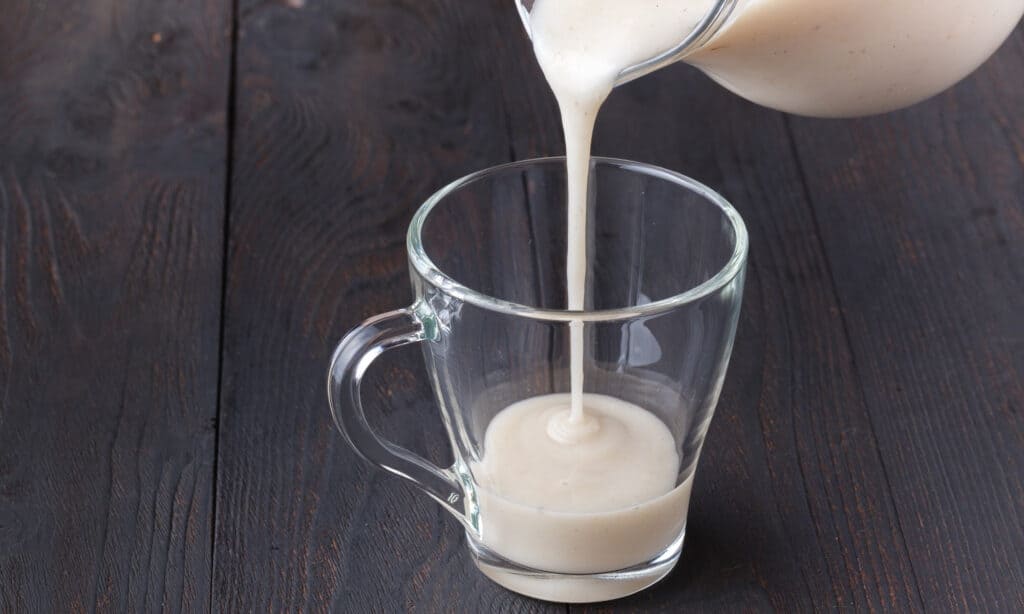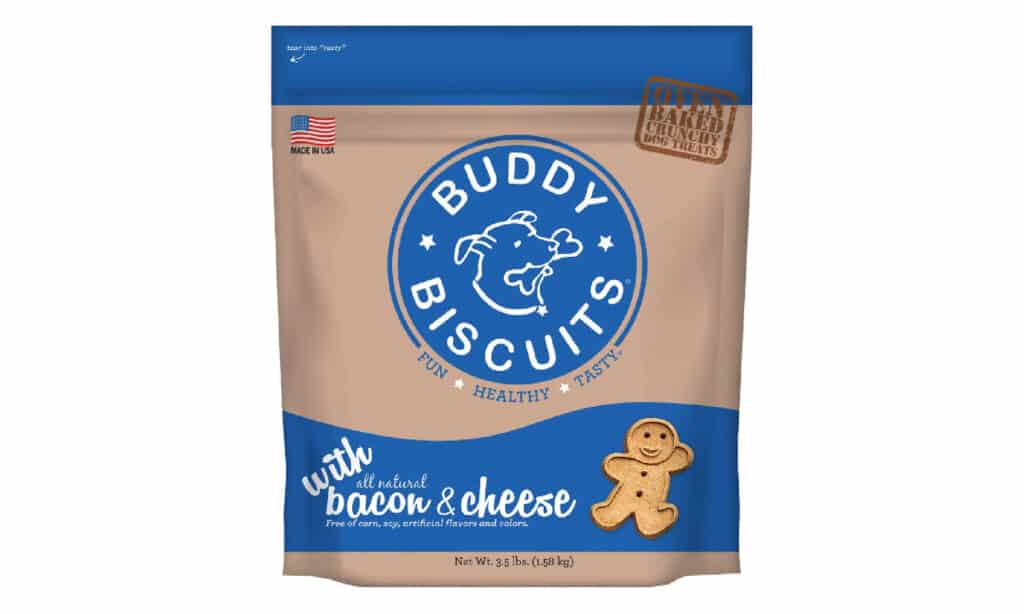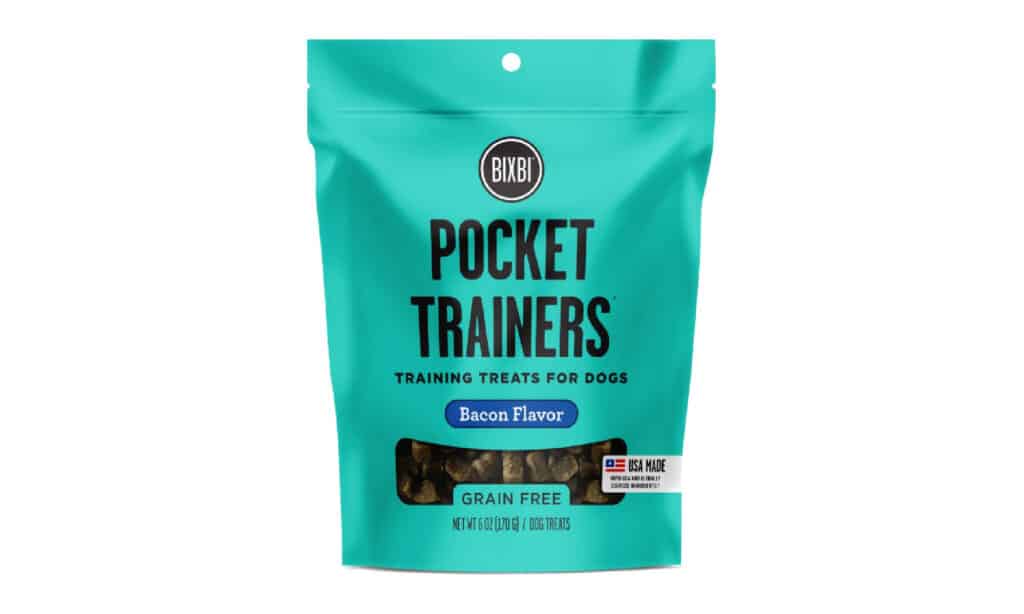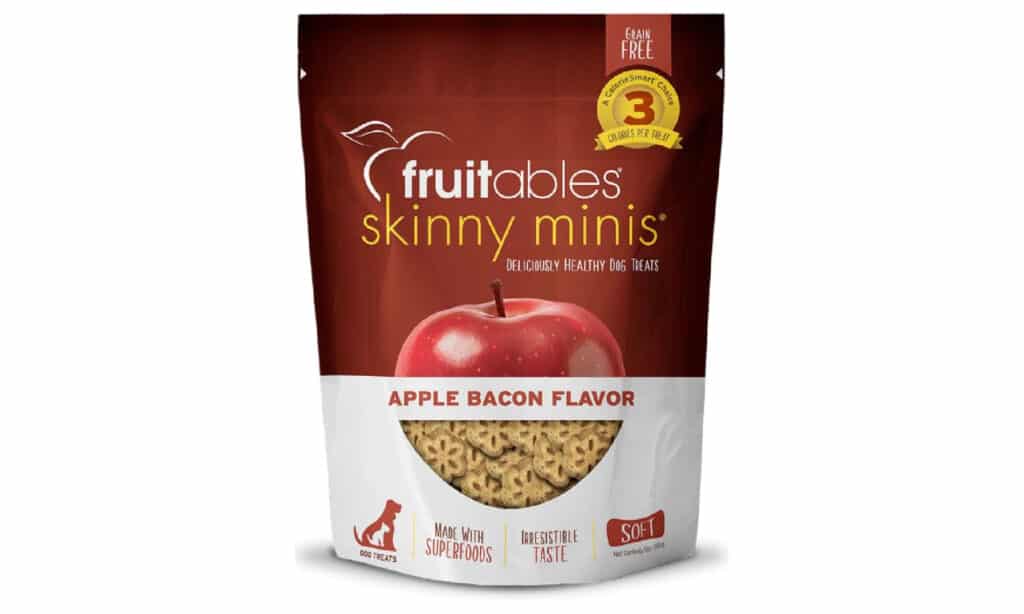As a dog owner, it’s natural to want to share everything with your furry friend, including your favorite foods and drinks. Oat milk has become a popular alternative to dairy milk in recent years, but can dogs eat oat milk? While oat milk is generally considered safe for human consumption, it’s important to be cautious when giving it to your canine companion. Learn about oat milk for dogs: benefits, risks, and how to incorporate it safely into their diet in this blog.

What Is Oat Milk?
Oat milk is a type of plant-based milk that is made by blending oats with water and then straining out the solids. The resulting liquid has a slightly sweet, nutty flavor and a creamy texture that is similar to cow’s milk. Oat milk has become increasingly popular in recent years as a vegan and dairy-free alternative to traditional milk.
One of the reasons for its popularity is its nutritional content. Oat milk is fortified with vitamins & minerals like calcium, vitamin D, and B12, making it a good non-dairy source. Oat milk is low in fat and calories, making it ideal for those watching their weight.
While oat milk is generally considered safe for human consumption, it’s important to note that it may not be suitable for everyone. Choose gluten-free certified oats if you have celiac disease or gluten intolerance due to possible cross-contamination during processing.
Can Dogs Eat Oat Milk?
While oat milk is generally safe for human consumption, it’s important to be cautious when giving it to your dog. Foods safe for humans can be harmful to dogs due to their unique nutritional needs.
In small quantities, oat milk is unlikely to cause any harm to your dog. However, it’s important to keep in mind that dogs are lactose intolerant, and oat milk is not a natural part of their diet. Dogs may have oat milk allergies, causing digestive problems, skin irritations, and other health issues.
If you do decide to give your dog oat milk, it’s important to choose a brand that does not contain any added sugars, flavors, or other additives. You should also introduce it gradually and in small amounts to see how your dog reacts. Stop giving oat milk to your dog and seek veterinary care if you notice vomiting, diarrhea, or abdominal pain.
In general, it’s always a good idea to stick to a balanced and nutritionally complete diet for your dog that is based on their specific needs and requirements. Share human food with dogs in moderation and caution, even as an occasional treat.

Harmful Ingredients in Oat Milk:
While oat milk is generally considered safe and healthy, some oat milk products may contain ingredients that are potentially harmful to our health. One such ingredient is added sugars, which can contribute to weight gain, tooth decay, and other health problems. Pick low-sugar or unsweetened oat milk to prevent health problems.
Another ingredient to watch out for is carrageenan, which is sometimes used as a thickener in plant-based milks, including some oat milk products. While carrageenan is generally considered safe, some people report digestive problems after consuming it. If you’re concerned about carrageenan, look for an oat milk product that does not contain it.
Lastly, some oat milk products may contain gluten, which can be a problem for people with celiac disease or gluten intolerance. If you’re gluten-sensitive, it’s important to choose an oat milk product that is certified gluten-free to avoid any potential issues.
Overall, oat milk can be a healthy and nutritious alternative to dairy milk, as long as you choose a high-quality brand that does not contain any harmful ingredients. Read labels and enjoy oat milk worry-free by being mindful of its ingredients.
Safe Ingredients in Oat Milk:
When it comes to giving your dog oat milk, it’s important to proceed with caution. Dogs can have allergies or sensitivities to oats in oat milk, leading to digestive or skin issues.
In small amounts, oat milk is unlikely to cause any harm to your furry friend. However, it’s important to keep in mind that dogs are lactose intolerant and oat milk is not a natural part of their diet. Dogs can have allergies or sensitivities to oats in oat milk, leading to digestive or skin issues.
If you do decide to give your dog oat milk, it’s important to choose a brand that does not contain added sugars, flavors, or other additives. You should also start with a small amount and gradually introduce it to your dog’s diet to see how they react. Stop oat milk if dog shows signs of health issues. Consult vet for guidance on digestive upset or other concerns.
Overall, it’s important to prioritize your dog’s nutritional needs and stick to a balanced and nutritionally complete diet that is specifically designed for their health and wellness. Moderation and caution are key when sharing human food with your dog as a treat.

What Signs To Watch For If Your Dog Accidentally Ate A Lot of Oat Milk?
If your dog accidentally consumes a large amount of oat milk, there are a few signs to watch out for that could indicate an adverse reaction. These signs include:
- Digestive upset: Consuming a large amount of oat milk can cause digestive upset in dogs. This may include symptoms such as vomiting, diarrhea, bloating, gas, or abdominal discomfort.
- Allergic reactions: Some dogs may be allergic or sensitive to oats or other ingredients in oat milk. This can cause symptoms such as skin rashes, hives, itching, or swelling.
- Lethargy or weakness: Oat milk can cause lethargy or weakness in dogs if consumed in large amounts.
If you notice any of these signs in your dog after they have consumed a lot of oat milk, it’s important to contact your veterinarian right away. Your vet can help determine the best course of action based on your dog’s specific symptoms and overall health. Be cautious when sharing human food with dogs and prioritize their nutritional needs.
When or If You Should Go To The Vet?
If you notice any of the signs mentioned previously after your dog has consumed a lot of oat milk, it’s important to monitor their symptoms closely. In most cases, digestive upset or mild allergic reactions will resolve on their own within a few hours or days.
However, if your dog is experiencing severe symptoms such as vomiting, diarrhea, or difficulty breathing, or if their symptoms persist for more than 24-48 hours, it’s important to seek veterinary care right away. When in doubt about your dog’s oat milk intake, consult a veterinarian for their safety and well-being.
When you bring your dog to the vet, they will likely perform a physical exam and may recommend additional testing or treatment depending on your dog’s symptoms and overall health. In some cases, they may recommend withholding food and water for a period of time to allow your dog’s digestive system to recover. If your dog is sick or has consumed a lot of oat milk, seek veterinary care to be safe.

Safe Dog-Friendly Alternative to Oat Milk:
If you’re looking for a dog-friendly alternative to oat milk, there are several options to consider. Here are a few safe alternatives:
- Water: Dogs need access to fresh, clean water at all times, as it is the most essential nutrient for them.
- Bone broth: Bone broth is a nutritious and tasty alternative to milk that can be easily made at home. Simmer bones with veggies in water for hours to extract nutrients for bone broth (chicken or beef).
- Coconut milk: Coconut milk is a safe dairy milk alternative for dogs, best given in moderation for a healthy diet. However, it’s important to choose a brand that does not contain any added sugars or other harmful ingredients.
- Goat’s milk: Goat’s milk is another safe alternative to dairy milk that can be given to dogs in moderation. It’s important to choose a high-quality brand and to introduce it gradually to your dog’s diet.
Overall, it’s important to prioritize your dog’s nutritional needs and choose safe and healthy alternatives to milk. If you have any concerns about your dog’s diet or health, be sure to consult with your veterinarian for advice and guidance.
Healthy Store-Bought Options:
In conclusion, oat milk can be a healthy and nutritious alternative to dairy milk for humans, but it’s important to be cautious when giving it to your dog. While oat milk is generally safe for dogs in small quantities, it’s important to keep in mind that dogs have different nutritional needs than humans and some foods that are safe for us can be harmful to our furry friends.
If you do decide to give your dog oat milk, it’s important to choose a brand that does not contain any harmful or potentially harmful ingredients, such as added sugars or carrageenan. You should also introduce it gradually and in small amounts to see how your dog reacts. If you notice any signs of digestive upset or other health issues, stop giving oat milk to your dog and consult with your veterinarian.
If you’re looking for a safe and healthy alternative to oat milk for your dog, there are several options to consider, such as bone broth, coconut milk, or goat’s milk. It’s important to prioritize your dog’s nutritional needs and choose safe and healthy alternatives to milk.
~Lindsie



